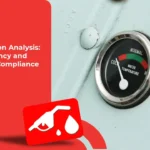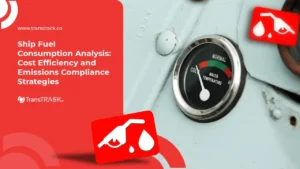Knowing What is MOQ (Minimum Order Quantity) and Its Benefits in a Business
Posted on January 1, 2024 by Nur Wachda Mihmidati

Minimum Order Quantity or MOQ for short is one of the strategies or concepts commonly used in buying and selling transactions. The implementation of this Minimum Order Quantity strategy can provide benefits for both buyers and sellers. However, in implementing this strategy, sellers should not be careless. There is a formula that needs to be taken into account to set the right MOQ strategy.
In the fast-paced and dynamic business world, the concept of MOQ or Minimum Order Quantity is one of the key elements that businesses need to understand. What exactly is Minimum Order Quantity, and how can its benefits form a strong foundation for business growth? Let’s explore thoroughly in the article TransTRACK below!
Definition of MOQ (Minimum Order Quantity)
MOQ, or Minimum Order Quantity is the minimum number of products that the buyer must purchase from the seller/supplier in one transaction so that the order can be processed. This means that in order to place an order, the buyer must meet a certain quantity limit set by the seller. This concept is generally applied to maintain efficiency and profitability in the sale of a product or service.
In simple terms, Minimum Order Quantity can be interpreted as the minimum number of orders that must be fulfilled by the buyer in order for the transaction to take place. This amount can be expressed in product units, order value, or even a certain period of time, depending on the policies and needs of each business. As troublesome as it may sound, MOQ actually has several benefits for both the supplier/seller and the buyer.
Benefits of MOQ for Sellers
The implementation of Minimum Order Quantity in business can provide various benefits for sellers. Here are some of the benefits:
Increase Profit Margin
The implementation of Minimum Order Quantity (MOQ) provides a great opportunity for sellers to increase profit margins. By setting a minimum order quantity, sellers can offer incentives such as discounts or better prices to buyers who are willing to place large orders.
This not only encourages buyers to increase their purchase volume but also helps sellers achieve better economies of scale. With increased sales volume, the production cost per unit can be reduced, which in turn increases the profit margin.
Inventory Optimization
Minimum Order Quantity plays an important role in a seller’s inventory management optimization. By setting a minimum order quantity, sellers can manage inventory more efficiently. Large orders allow sellers to maintain optimal inventory levels without overstocking that might result in unnecessary storage costs. This not only reduces storage costs, but also avoids the risk of expired or obsolete products.
Another benefit is the ability to respond to customer requests more quickly. With a well-organized inventory, sellers can fulfill orders more efficiently, increase customer satisfaction, and build a reputation as a reliable provider. In other words, inventory optimization through MOQ helps sellers create a sustainable and efficient operational ecosystem.
Increasing Competitiveness
Improving competitiveness is a key goal for every business, and implementing Minimum Order Quantity is one effective strategy to achieve this. By offering special pricing for large orders, sellers can provide greater appeal to potential customers. Buyers tend to be attracted by the opportunity to save on per-unit costs, and this can be a significant competitive advantage for sellers.
Not only that, the implementation of MOQs allows sellers to compete in contract bidding or large-scale projects. By offering competitively priced solutions through MOQs, sellers can attract the attention of corporate or wholesale customers who are looking for a reliable partner. Thus, MOQ is not just about selling products, but also about creating a strong position in the increasingly fierce market competition.
Benefits of MOQ for Buyers
The benefits of implementing MOQ (Minimum Order Quantity) for buyers can be very significant in a business context. The following is a detailed explanation of these benefits:
More Competitive Prices
By implementing a Minimum Order Quantity (MOQ), buyers can experience tangible benefits in the form of more competitive prices. Sellers often provide incentives in the form of discounts or special price offers to buyers who are willing to fulfill or exceed the minimum order quantity. With more competitive prices, buyers can allocate their remaining funds for other needs.
Procurement Cost Efficiency
By ordering in bulk, buyers can reduce the frequency of orders and delivery of goods. This directly reduces logistics, transportation, and order management costs. Buyers not only save on shipping costs, but also optimize the use of resources, including the time and effort required to place repeat orders.
Opportunities for Special Offers
When buyers are willing to place large orders, they often have more room to negotiate special terms. This could include longer payment terms, more flexible shipping terms, or even the opportunity to get additional products at a lower price.
MOQ is not just a business concept, but also a strategy that can benefit both parties. In an ever-changing business, the ability to adapt and understand the dynamics of MOQ becomes the key to success.
The implementation of Logistic Service Integrator (LSI) technology from TransTRACK can make a significant contribution in optimizing a business’s MOQ strategy. By utilizing LSI, businesses can efficiently integrate their entire supply chain, from ordering to delivery. The technology can perform real-time monitoring of inventory, market demand, and production processes, enabling quick adjustments to changing needs. With accurate and easily accessible data, companies can determine MOQs that are more precise and responsive to market dynamics.
Hopefully, this article can provide a better understanding of MOQ and how this concept can benefit various parties in the business world.
Recent Post
Topic :
 Bahasa Indonesia
Bahasa Indonesia









